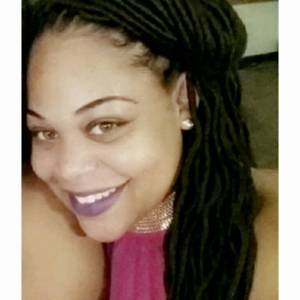 Black women can do everything. We’ve been programmed since nursing white babies, tending the house and picking the fields to handle all things thrown our way. The strength of our female ancestors, who bent hell backward and opened doors to freedom, were passed down to us. Their determination, resilience, and tenacity to never break, live in the bosoms of our bellies. And because so, nothing is too hard. We’re good at everything. We don’t give up and we don’t get tired.
Black women can do everything. We’ve been programmed since nursing white babies, tending the house and picking the fields to handle all things thrown our way. The strength of our female ancestors, who bent hell backward and opened doors to freedom, were passed down to us. Their determination, resilience, and tenacity to never break, live in the bosoms of our bellies. And because so, nothing is too hard. We’re good at everything. We don’t give up and we don’t get tired.
As awesome as this may sound, and while we would like this to be true, we know that it’s not.
But somehow, black women have been labeled with this permanent marker that we are invincible. Showing emotion or weakness means we are less than, and reaching out for help and/or advice means we are worthless. We’ve been forced to live up to this invisible aptitude; pink S’s adorn our chest because we are “super” women and never sub-par.
I would like to go on record and publicly admit how untrue this is.
I fell into this mindset of being a Super Woman, and it wasn’t until I became a mother that I realized the level of trauma that comes along with pretending to be okay when you aren’t. Having children changes a woman--and this ismuch more than a physical change, but a mental and emotional change. We stress about being the perfect mother, having a bomb “snapback”, still desiring to feel attractive to our significant others and needing to feel acknowledged. We feel highly criticized and judged; closed off from the rest of the world due to our babies’ beck and calls. This is postpartum depression.
Postpartum depression is suffered by a mother following childbirth. It is usually a combination of hormonal changes, psychological adjustment to motherhood, and fatigue. It doesn’t have to be this harsh example of postpartum depression we’re so used to hearing about. But feeling overwhelmed from day to day activities, extreme anxiety about tackling certain obstacles, being emotionally exhausted, having varying mood swings and lack of sleep, are categories of postpartum depression.
See, Depression is something black people never talk about. It’s become a taboo subject, so often swept under the rug that we’ve learned to suppress our emotions. I realized early on how unhealthy leaving bottled emotions unacknowledged can be when it changed the dynamic of my relationships. I didn’t know how to express to my husband how unattractive I felt or convey to others that I was excited about being a mother, despite the sleepless nights and the hell recovery could be.
It wasn’t until conversations with my black female friends, that I learned that black women experience the baby blues, too. We experience the depression. We fear the unknown of parenthood, so why should we suffer in silence because of falsely printed S’s on our chests, we never asked to be there?
It is time we break the stigma that Black women aren’t allowed to be weak or vulnerable. We’re allowed to not have the answers. We’re allowed to “cry it out” as our babies do; we’re allowed to beoverwhelmed and overworked. This doesn’t mean we aren’t strong, but even the strongest person knows their limitations. Postpartum depression doesn’t have to be as grim as we believe it to be. It is feeling like you want to cry out loud, but fearful that no one will hear you. Because black women don’t cry--because Black women don’t break or bend.
Raising children is a very stressful and time-consuming job. And because we’ve been conditioned to believe that black women are superior beings, that expectation coupled with the stress, makes us that much more susceptible to feeling inadequate. The house won’t be clean all the time.
Diapers won’t be changed immediately. We won’t be sexy 24/7. Allow us to be comfortable in our truth. Our blackness shouldn’t negate our experiences of certain things. Our discovery of being healthy in our bodies, our minds and spirits should be supported. Trust that those ancestors from which we come are there to guide us from a spiritual realm if ever we fall short, but know, we will fall short.
We are good mothers. Leave the ‘S’ on our chests; we deserve to have it printed there. Just understand the difference. Being a superwoman doesn’t mean we’re Super-Woman.
...and that’s okay.

Abril Green (Edwards) is an author, spoken word artist & motivational speaker; founder of #BumpyButNotBlocked Ministries & Spoken WorDship where she spits "Poetry with A Purpose". Currently a Literacy Interventionist at Chicago Public Schools, Abril believes "the greatest relationship outside of Man and His Higher Power, is between a Pen and HER Paper."









